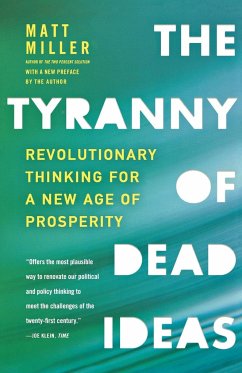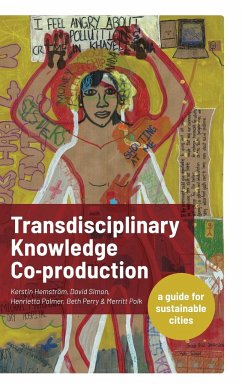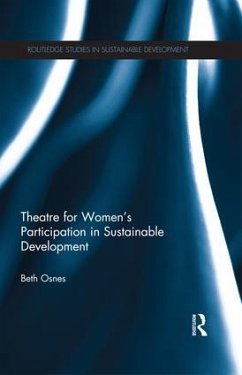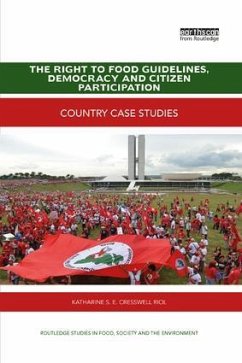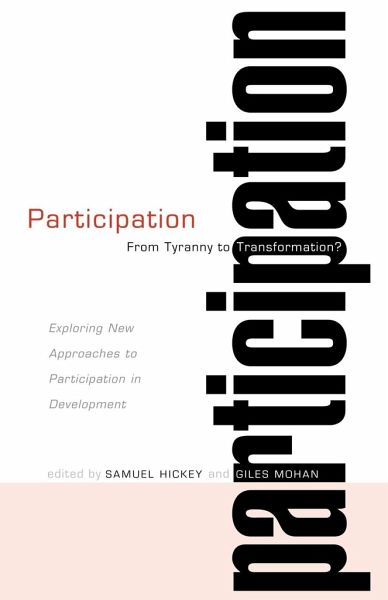
Participation--From Tyranny to Transformation?
Exploring New Approaches to Participation in Development
Herausgeber: Hickey, Samuel; Mohan, Giles
Versandkostenfrei!
Versandfertig in 1-2 Wochen
46,99 €
inkl. MwSt.

PAYBACK Punkte
23 °P sammeln!
Participation is a popular approach to project implementation, policy-making and governance in both developing and developed countries. Recently, however, it has become fashionable to dismiss participation as more rhetoric than substance, and subject to manipulation by those intent on pursuing their own agendas under cover of community consent. This books seeks to rebut this simplistic conclusion. It describes and analyses new experiments in participation from a wide range of situations that show how, far from being a redundant and depoliticizing concept, participation can be linked to genuinely transformative processes and outcomes - provided that a political and not a technocratic approach is taken. It examines the recent convergence between participatory development and participatory governance, and the role of all the main actors - the state, civil society and donor agencies. It takes contemporary advances in development theory into account and proposes theoretical and practical ways forward.
Participatory techniques have established themselves in both project implementation in developing countries and community interventions in industrial countries. Recently, participation has been fashionably dismissed as more rhetoric than substance, and subject to manipulation by agents pursuing their own agendas under cover of community consent. In this important new volume, development and other social policy scholars and practitioners seek to rebut this simplistic conclusion. They show how participation can help produce genuine transformation for marginalized communities. This volume is the first comprehensive attempt to evaluate the state of participatory approaches in the aftermath of the "Tyranny" critique. It captures the recent convergence between participatory development and participatory governance. It revisits the question of popular agency, as well as spanning the range of institutional actors involved--the state, civil society and donor agencies. The volume embeds participation within contemporary advances in development theory.




